What are Statins (Cholesterol-Lowering Drugs) and How Do They Work?
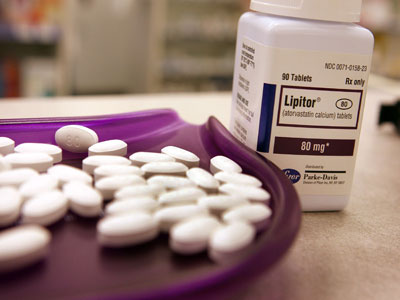
Statins work by inhibiting the action of an enzyme called HMG coenzyme A reductase. A more technical name for statins is HMG-CoA reductase inhibitors. HMG-CoA reductase is involved in manufacturing cholesterol, so by inhibiting this enzyme, one’s cholesterol does go down, which is why cholesterol-lowering drugs are indeed effective at lowering cholesterol. HMG-CoA reductase is also responsible for manufacturing the body’s coenzyme Q10 (CoQ10), a powerful antioxidant.
The Importance of Cholesterol
Cholesterol has been demonized in recent years by the pharmaceutical industry, but having adequate cholesterol is essential for good health. For example, without adequate cholesterol, the body is not able to produce adequate amounts of vitamin D. Cholesterol is also essential for adequate neurological function,as well as being a precursor to all hormones such as the adrenal hormones. The adrenal hormones are responsible for regulating many processes in the body, such as inflammation, allergic response, libido, and blood sugar, among other things.
The Importance of Vitamin D

Remember that by inhibiting the synthesis of cholesterol, the synthesis of vitamin D is also inhibited. That means that even if you are eating vitamin D rich foods or getting adequate sunlight exposure, your body will still not be able to synthesize adequate amounts of vitamin D if you are also taking cholesterol-lowering drugs. Adequate levels of vitamin D are essential for a healthy immune system, blood sugar metabolism, mental health, and cancer prevention.
The Importance of Coenzyme Q10
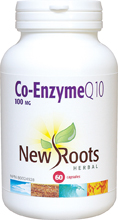
HMG-CoA reductase is responsible for the body’s production of both cholesterol and coenzyme Q10. Statin drugs act by blocking the action of HMG-CoA reductase, and therefore, the body also becomes depleted of CoQ10.
Coenzyme Q10 is necessary for the body’s production of ATP, which provides energy to all cells. The heart depends on CoQ10 in order to have adequate energy to pump properly. Statin-induced depletion of CoQ10 leads to fatigue, muscle soreness and weakness, and eventually heart failure. CoQ10 is a potent antioxidant that protects cells from free radical damage, and it also plays a role in maintaining blood glucose (diabetes prevention).
Since statins interfere with the production of CoQ10, it is essential for statin users to supplement with this vital nutrient. Cholesterol expert Dr. Langsjoen recommends that all statin users supplement with 100-200 mg of coenzyme Q10 per day.
The Benefits of High Cholesterol and Dangers of Low Cholesterol

We have been brainwashed by the pharmaceutical companies to think that having high cholesterol is bad, but in fact, good science proves the very opposite. A study in 1994, for example, showed that old people with high cholesterol were half as likely to die from a heart attack as old people with low cholesterol. In fact, most studies of old people show that cholesterol is not a risk factor of coronary artery disease. Studies have also shown that high cholesterol is not a risk factor for women.
Studies have also shown that people with low cholesterol are at a greater risk of dying from gastrointestinal disease and respiratory diseases. Low cholesterol is also associated with greater incidence of HIV, and people with low cholesterol are also much more likely to die of heart failure.
A Meta-Analysis of Studies Disproves the Benefit of Statins
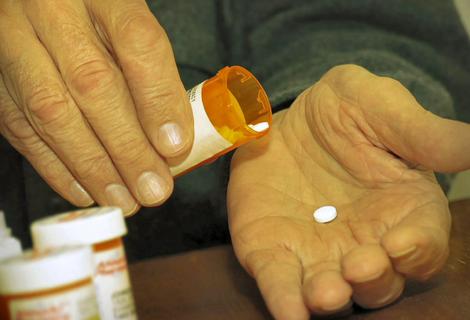
After a thorough analysis of all the major studies done on people who use statins, cholesterol expert Dr. Uffe Ravnskov concluded that the small benefits of using statins are not statistically significant, meaning the percentage of benefit is really no different than benefit from placebo. In fact, it was found that in some studies, more deaths occurred in treatment groups (people who used statins) vs. controls (those who did not use statins).
The Major Side Effects of Statins
Liver Damage
A meta-analysis of studies shows that statin drugs cause liver damage, and sometimes liver failure. To protect the liver, all statin users should take a daily liver detox supplement, such as Liver Hepato Protect.
Muscle Pain and Weakness (Rhabdomyolysis)
Muscle pain and weakness, also known as rhabdomyolysis, is a common side effect of taking statins. Most likely, this side effect is due to statin-induced depletion of coenzyme Q10, which is essential for proper muscle function.
Rhabdomyolysis can lead to kidney injury, kidney failure, and death.
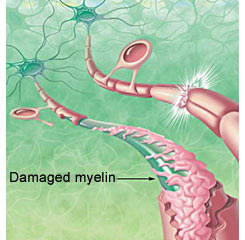
Polyneuropathy
Polyneuropathy is a nerve disease characterized by weakness, tingling and pain in the hands and feet, as well as difficulty walking. Studies have shown that statin use is associated with an increased incidence of this condition. Duration of statin use increases the risk of polyneuropathy, and the nerve damage is often irreversible.
Alzheimer’s & Loss of Brain Function
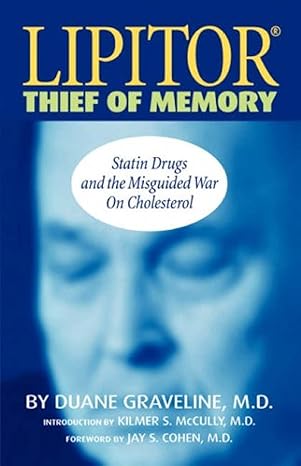
Adequate cholesterol is essential for proper brain function. Studies have found that older people with high cholesterol have better memory function and reduced dementia. Studies have also shown that people with low cholesterol have a greater risk of Alzheimer’s than those with high cholesterol.
Author and cholesterol expert Dr. Duane Graveline wrote a book about what statins did to his memory, titled Lipitor: Thief of Memory. Six months after Dr. Graveline started using Lipitor, he was diagnosed with transient global amnesia. He was unable to formulate new memories and also had retrograde memory loss. Suspecting that Lipitor was to blame, Dr. Graveline started doing his own research on statin side effects. At present, Dr. Graveline has uncovered over 2,000 cases of transient global amnesia associated with the use of statins.
Cholesterol expert Yeon Kyun Shin explains: “If you deprive cholesterol from the brain, then you directly affect the machinery that triggers the release of neurotransmitters. Neurotransmitters affect the data-processing and memory functions. In other words — how smart you are and how well you remember things.”
Pneumonia
A recent study found that statin use increased the risk of pneumonia by a whopping 62% in elderly patients requiring hospitalization.
Cancer: The Deadly Price of Using Statin Drugs

After a thorough meta-analysis of studies on cancer and statin use, it was found that there was an inverse relationship between low cholesterol levels and cancer. What this means is that those people who were able to lower their cholesterol effectively with statins were at greater risk for developing cancer.
The statin drug Vytorin was taken off the market in 2008 after it was proven to have caused a whopping 64% increase in all types of cancer.
Scientific studies have found that all major statin drugs (Lipitor, Mevacor, Pravachol, Zocor, Crestor) cause cancer in rodents, and warnings about possible carcinogenicity in humans is found on all statin drug labels.
A recent study reported that among obese men, those who used a statin for 5 years or more had a whopping 80% greater risk of developing prostate cancer than those who did not use a statin drug. Other human studies have shown that statin drug use increases the risk of skin cancer and breast cancer.
Heart Failure
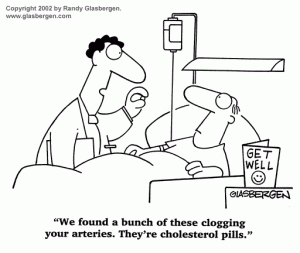
Heart failure is a symptom of coenzyme Q10 depletion, therefore it is very important that all statin users supplement with this vital nutrient (100-200 mg per day).
A study done in the UK showed that patients at risk for heart failure benefited from having high cholesterol rather than low. Those patients who had low cholesterol were at a greater risk of dying from heart failure.
Diabetes
A recent large-scale study done on postmenopausal women found that there was a whopping 48% increase in incidence of diabetes in women who took statins vs. women who did not take statins.
A meta-analysis of studies has found that statin use is linked to an increased risk of diabetes in men and women of all age groups.
The Real Cause of Heart Disease is Inflammation, Not Cholesterol
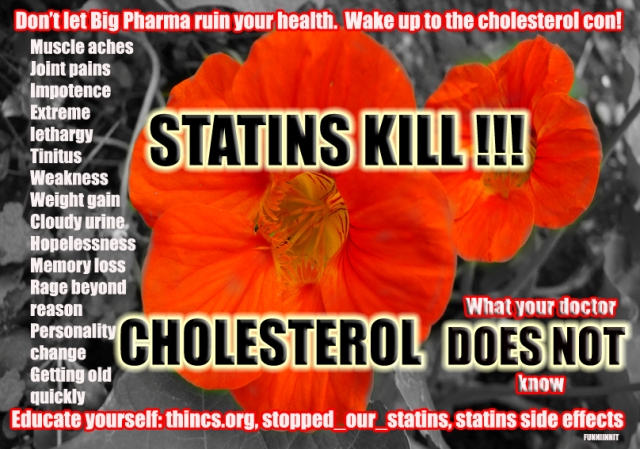
According to cardiovascular surgeon Dr. Dwight Lundell, it is chronic inflammation, not cholesterol, that is the cause of heart disease. “Simply stated, without inflammation being present in the body, there is no way that cholesterol would accumulate in the wall of the blood vessel and cause heart disease and strokes. Without inflammation, cholesterol would move freely throughout the body as nature intended. It is inflammation that causes cholesterol to become trapped.”
Any stress, emotional or physical, can also lead to chronic inflammation. Toxins in our food and environment would be examples of physical stresses, and long work hours would be an example of emotional stress.
Eating a diet rich in Omega 3 fatty acids will help reduce inflammation. That means staying away from Omega 6 fats, like corn and soy oil, and eating more Omega 3-rich animal based fats, such as fish, eggs, butter and meat. Heart healthy vegetable based fats that are rich in Omega 3 fats include olive oil, coconut oil, and avocados. Those who cannot get enough Omega 3 fats from foods should take a good Omega 3 fish oil supplement.
Homeopathic treatment is also recommended for people with heart disease, because it gets to the root cause of the problem (chronic inflammation) without causing any of the harmful side effects of statin drugs. Click here to learn more about homeopathic treatment for heart disease.
References
APOE-4: The Clue to Why Low Fat Diet and Statins may Cause Alzheimer’s by Stephanie Seneff
Cancer, Longevity and Statins by Hopkins Technology
Cholesterol-Reducing Drugs May Lessen Brain Function, Says Researcher by ScienceDaily
CoEnzyme Q10 for Healthy Hearts by John Williamson Cameron
Do YOU Take Any of These 11 Dangerous Cholesterol-Lowering Drugs? by Dr. Joseph Mercola
Drugs, Liver Injury, and Cancer: Is there a Connection? by Jay S. Cohen, M.D
Heart Surgeon Speaks out on What Really Causes Heart Disease by Dr. Dwight Lundell
How Statins Really Work Explains Why They Don’t Really Work by Stephanie Seneff
Prostate cancer risk increased in obese men: study by Michelle Rizzo (Reuters)
Statins Don’t Lower Pneumonia Risk in the Elderly by Medical News Today
Statins, Pregnancy, Sepsis, Cancer, Heart Failure: a Critical Analysis by Stephanie Seneff
The Benefits of High Cholesterol by Uffe Ravnskov
The Cholesterol Myth that Could be Harming Your Health by Dr. Joseph Mercola
The clinical use of HMG CoA-reductase inhibitors (statins) and the associated depletion of the essential co-factor coenzyme Qlo; a review of pertinent human and animal data by Peter H. Langsjoen, M.D., F.A.c.c.
The Common Drug that Destroys Your Memory by Dr. Joseph Mercola
The Dark Side of This Popular Drug Taken by 1 in 4 Americans Over-45… by Dr. Joseph Mercola
The statin-low cholesterol-cancer conundrum by U. Ravnskov, K.S. McCully and P.J. Rosch
Vitamin D is Synthesized by Cholesterol and Found in Cholesterol-Rich Foods by Chris Masterjohn
What Women on Statins Need to Know About Diabetes by Yunsheng Ma, MD, PhD, MPH
Further Reading: Websites about the Dangers of Statins
The International Network of Cholesterol Skeptics
The Weston A. Price Foundation
Further Reading: Books about the Dangers of Statins
How Statin Drugs Really Lower Your Cholesterol and Kill You One Cell at a Time by James B Yoseph and Hannah Yoseph, MD
Ignore the Awkward: How the Cholesterol Myths are Kept Alive by Dr. Uffe Ravnskov
Lipitor: Thief of Memory by Dr. Duane Graveline
Statin Drugs Side Effects and the Misguided War on Cholesterol by Dr. Duane Graveline
The Cholesterol Delusion by Dr. Ernest M. Curtis
The Cure for Heart Disease: Truth Will Save a Nation by Dr. Dwight Lundell
The Great Cholesterol Con by Anthony Colpo
The Statin Damage Crisis by Duane Graveline MD and and Malcolm Kendrick
What you Must Know about Statin Drugs and their Natural Alternatives by Jay S. Cohen
One thought on “The Deadly Dangers of Cholesterol-Lowering Drugs”
Leave a Reply
You must be logged in to post a comment.
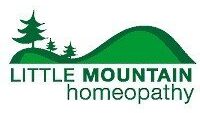
I have been on Lipitor for 3 years. My cardiologist warns me that I must never stop taking Lipitor. I told my cardiologist that my legs and back really ache and he said it was my age. I’m 42 and I know that’s not young, but I don’t think I should ache this much. Also the memory thing is affecting me. My short term memory is definitely not what it was a few years ago. It’s kind of scary sometimes. My cardiologist is very well respected and he swears that statins are 100% safe. He told me that I will not live to see my 50th birthday if I go off Lipitor. I told him that I’ve read some disturbing things about statins, and he told me never, ever believe what you read on the Internet regarding medicine. He said it is all baloney. Frankly I don’t know who to believe. I’m also taking a beta blocker, a calcium channel blocker, and a blood thinner as preventive medicine. My blood pressure was 138/77 pulse 73, and my cardiologist said that was heart attack stroke territory! My blood pressure is now 110/63 pulse 53, but I feel depressed, tired and achy. Is this what I have to endure so I don’t die in a few years? I have always put all of my faith in science based medicine and believe everything my doctors have told me in the past, but I feel dehumanized with the medication. Not too mention the cost of the meds, the Plavix and Lipitor are attacking my finances.